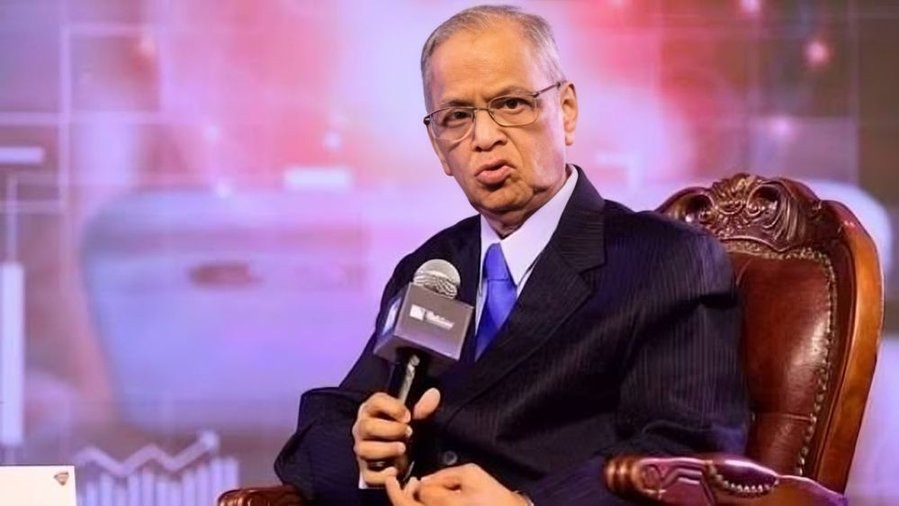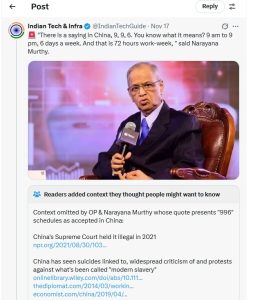Narayana Murthy Rekindles 72-Hour Work Week Debate, Cites China’s 9-9-6 Model
Infosys founder Narayana Murthy has reignited India’s polarizing work hours debate by advocating for 70-72 hour work weeks, citing China’s controversial 9-9-6 system as a benchmark for economic growth. However, critics immediately pointed out that China itself declared this practice illegal in 2021 due to health concerns and burnout risks.
Key Takeaways
- Narayana Murthy advocates 70-72 hour work weeks for young Indians
- References China’s 9-9-6 system (9 am-9 pm, 6 days weekly)
- China banned this practice in 2021 over health concerns
- Social media users demand better salaries and work conditions first
“First Get a Life, Then Talk Balance”: Murthy’s Philosophy
When asked about work-life balance by Republic TV’s Arnab Goswami, Murthy responded: “First we should all get a life, then we should worry about work-life balance.” The Infosys founder emphasized that his perspective stems from decades of observation across countries and industries.
“No individual, no community, no country has ever come up without hard work,” Murthy stated, linking success directly to sustained effort. He cited examples from astrophysicists to sportspersons, and claimed India’s Prime Minister works nearly 100 hours weekly as an inspiration for youth.
China’s 9-9-6 Work Culture: Murthy’s Benchmark
Murthy referenced China’s work culture based on his investment firm Catamaran’s research across tier 1, 2, and 3 Chinese cities. He asserted the 9-9-6 phrase remains relevant there.
“9 am to 9 pm, 6 days a week. And that is 72 hours a week, friends,” he presented this as a disciplined growth model. Murthy argued India has reached an economic “inflection point” where relaxing could prevent achieving a $10 trillion economy.
Social Media Backlash: “Illegal in China Itself”
While Murthy used China as an example, social media users highlighted that China banned the 9-9-6 model in 2021 following reports of burnout, health risks, and deaths linked to excessive working hours.
“Great idea sir, but first give China-level salaries, infrastructure, and cost of living. Then we will talk,”
Another comment summed up the frustration many feel. “India doesn’t need 72-hour weeks. India needs salaries that match rent, groceries, school fees and petrol.”
Users pointed to India’s weak overtime protections, poor enforcement of existing laws, and stagnant salaries despite increasing work demands.
One comment that went viral said, “Before asking people to work 72 hours, fix the jobs, salaries and basic work conditions first.”
Others took a sarcastic swipe. “So will you pay on an hourly basis? No. You want employees to work 24×7 so that you can transfer shares worth Rs 250 crore to your grandson while paying workers Rs 3.6 lakh a year.”
A Nation Divided: Growth vs Well-being
Murthy first sparked this debate in 2023 with his 70-hour work week suggestion. The current remarks have reopened the divide between those viewing it as necessary discipline for national progress and others considering it disconnected from modern realities where growth shouldn’t compromise health, family, and workplace dignity.





